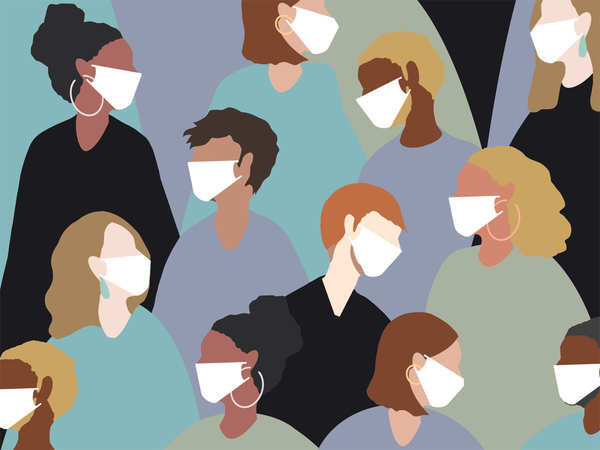It is hard to imagine a more appropriate time in American history to think about the relationship between Truth and Democracy. We are living in a world in which Truth seems to be up for grabs and people’s feelings seem more important than scientific knowledge and facts. We are also living in a world in which liberal democratic values, norms, and institutions are in crisis. Politicians of all political persuasions act as though staying in power is more important than serving the public good. Hence, they become masters of Untruthtelling. It’s no surprise that citizens no longer trust their leaders and are susceptible to manipulation by conspiracy theorists, predatory opinionmakers, and demagogues.

In this seminar, we will consider numerous aspects of the uneasy relationship between Truth and Politics in our troubled times. As you will see, I have a broad conception of these twin concepts. It is based upon the idea that Truthtelling and Truth-living are essential components of a flourishing Liberal Democratic polity. By Truth, I mean the obligation of politicians to seek “the whole truth,” and not just pick and choose elements that serve their personal interests. By Politics, I mean the noble activity in which citizens collaborate in pursuit of a common good. I believe there is no better system for facilitating this activity than Liberal Democracy. Yet, Liberal Democracy is in peril. We must fight for the Truth if we want to save it!
An Opportunity and a Challenge
Our seminar comes at a unique time in modern history. And it presents us with both an opportunity and a challenge.
The Opportunity: The immediacy of the global Coronavirus pandemic has given you, like it or not, an “epistemic opportunity” to reflect upon the human condition in ways that have been unavailable to generations of Notre Dame students for at least the last half century.
The Challenge: Our seminar is taking place at an historical juncture at which America is deeply divided and polarized. When it comes to the positions of both Republicans and Democrats, there is blame to go around on both sides. Thus, it is important to me that our seminar be non-partisan. As you will see, this entire seminar is designed to induce you to disagree about major political issues. I relish disagreement about politics.
Nonetheless, because our seminar is focused directly on the issue of Truth, it would be irresponsible for me to treat truthful, scientifically-verifiable, and factual claims as matters of belief or opinion. Whether you or I like it or not, these claims are what they are. For example, the existence of an overwhelming consensus among climatologists about the existence, causes, and threat of global climate change is a fact. Similarly, there is no significant evidence to show that the 2020 Presidential election was fraudulent. If substantial evidence existed, it would have been presented to the courts or resulted in the decertification of state election results. See Atty Gen. William Barr’s statement here. See Sen. Mitch McConnell’s statement regarding false claims about the election and the threat that democracy will enter into a “death spiral,” see here. For a fact-checking analysis of claims that the election was fraudulent, see here. The great thing about fact-checking, is that if you can marshal evidence to prove that the claims are wrong, then you will be right and the fact-checkers, the courts, and I will be wrong. But first, you have to come up with the evidence.
Am I trying to provoke you in making this statement? Absolutely!
Seminar Structure: Because your time at Notre Dame is quickly slipping away (you now have less than three semesters!), I have deliberately designed this seminar to provide you with the opportunity to ask big questions and to reflect on the significance of the substantive political science courses you have already taken. You are already uniquely positioned to pose these questions.

Our seminar is divided into four parts. In the first part, we will lay the foundations for our investigation by reflecting on what some great political thinkers had to say about Truth and Politics. Although many of these writers are long dead–Machiavelli, Kant, Mill, Dewey–you will find that their arguments are as perceptive and powerful today as they were centuries ago. In the second part, we will examine multiple manifestations of the contemporary crisis over the role of Truth in political life. In the third, we will consider what can be done to restore the good health of our democratic system. Finally, we will conclude our seminar by asking what it means for each of us to “live within the truth.”
All Notre Dame students should do their best to live up to the demanding task of living within the truth. You have already won the Ovarian Lottery, as Warren Buffett points out. Moreover, you are studying at a Catholic university that seeks to pursue the ultimate Truth. Hence, you should be in the business of Truthseeking, Truthtelling, and Truthliving. To paraphrase an eighteenth century writer whom we will soon encounter, Dare to act accordingly!
I expect that our topics and discussions will evolve with the ebb and flow of political circumstances. The advantage of a web-based Syllabus, the format I use for all of my courses, is that I can modify it as we move along. On the important of this Syllabus, WATCH this instructive video. This is a reading-, writing-, and speaking-intensive seminar. Therefore, it is essential that you keep up with all of the Syllabus’s topics and assignments.
Note: I am also teaching a first-year seminar on our theme. The syllabus and assignments for that seminar are in many cases very different than our seminar. Thus, you should bookmark this page to make sure you are always going to the right place.
***
Advisory: Unless I say otherwise, please leave your technology at home. This includes electronic devices of any kind, such as laptops, Kindles, i-Pads, I-phones, video cameras, video games, trap-and-trace devices, and other personal digital technology.
My class is a no-tweet zone. Some behavior is just not dignified!
.
The photos on the headers of this Syllabus were all taken by my friend, Fr. Slawomir Nowosad, a professor of theology at the John Paul II Catholic University of Lublin, Poland
